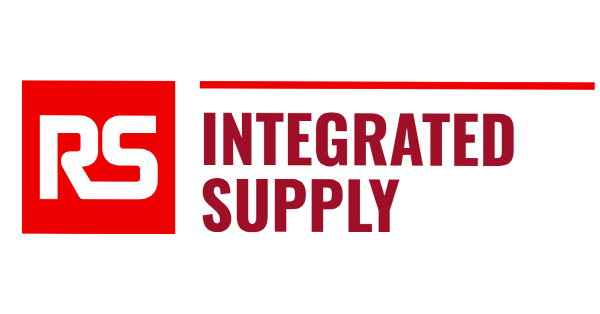Overhauled MRO Strategy Propels UK Food Manufacturer to Save Millions, Boost Productivity

For most companies, the COVID-19 pandemic presented a significant challenge in managing operations. Some navigated that challenge successfully.
One food manufacturer based in the UK was among those to successfully manoeuvre through the pandemic and beyond. But it was not the pandemic that made them more productive. It was the foundation built well in advance, sometimes years before, that led to success.
While aggressively growing through strategic acquisition, the company created a situation where it had limited cash. That, combined with slow adoption of process improvements, meant the rapid growth did not deliver the intended benefits of scale, at least initially.
To address the cash flow issues, the company launched multiple projects, one of which involved outsourcing its MRO supply chain management to a third-party service provider.
That contract, a 10-year deal that included strategic procurement and on-site storeroom management, included anticipated material cost reductions delivered over the length of the contract.
The agreement has delivered well beyond the intended savings, helping catapult the manufacturer and the integrator to substantial growth. But the experience was not without pain.
The Challenge
This is an industry notorious for its tight profit margins and unrelenting demands to improve products. Despite seeing a double-digit percentage increase in sales, the company still had pressure to make the manufacturing process more efficient, without impacting costs.
Adding to that pressure was unplanned downtime. It is the proverbial thorn in the side to production and a perennial challenge that all manufacturers face. According to a recent survey from RS and the Institution of Mechanical Engineers (IMechE), the average hourly cost of plant downtime for all industries is more than £5,000 (est. $6,500 USD), with the number of hours spent weekly on unscheduled maintenance at 19.6 (for more information, download the report here).
At its multiple production sites, this food manufacturer’s maintenance teams worked to avoid stoppages by staying laser-focused and doing whatever was necessary to keep equipment running. It meant using local suppliers to get spare parts delivered quickly, rather than looking to maximise buying power. It also meant site-specific lines of reporting, with the chief engineer at each facility reporting to the factory manager and, in turn, the operations director, rather than the director of engineering.
These ways of working, although understandable, kept engineers trapped in a cycle of reactive maintenance, unable to leverage spending. This exacerbated another MRO challenge for this food manufacturer. The business had grown by acquisition, meaning different factories making assorted products and operating with significant independence. The flip side of this was the lack of standardisation and optimisation between sites. No two sites operated the same.
The client’s material spend was more than £20 million, with material goods making up more than 75% of that spend.
The Solution
The company began working with RS Integrated Supply more than 10 years ago, when a punch-out procurement system was introduced. Today, the two companies partner across nine manufacturing sites, with outsourced staff at seven of those locations.
RS Integrated Supply implemented its MRO strategy, utilizing supplier relationships to drive down material costs while implementing a storeroom management process that reduces waste, optimizes inventory, and cuts costs.
Soon after, a proprietary materials management software system was introduced, automating sourcing, and purchasing, while reducing the client’s transactional processing burden.
Key Performance Indicators (KPIs) were set to measure progress against stock availability and accuracy, quote response times for ad hoc purchases and on time, in full delivery. These targets reflect the client’s need to keep production lines operational. Maintenance engineers cannot wait days for critical parts to arrive. They need to know that the correct parts are available, and they need to be able to trust in delivery of those parts when needed.
The relationship is, however, more than transactional. Part of RS Integrated Supply’s role is to improve MRO governance and develop ways of making data-based decisions that leverage spend. In practice, this means introducing decision trees that enable all sites to work together and standardise naming conventions to improve transparency and communications between sites.
The team also installed hand-held scanners and a new proprietary technology platform, a cloud-based marketplace solution that provides users with access to thousands of approved vendors. Collectively, these changes helped the client to transition from reactive maintenance to a more efficient planned approach.
The Results
RS Integrated Supply works with hundreds of suppliers, processing tens of thousands of purchase orders and corresponding invoices on behalf of the client each month.
The amount of MRO transactions managed by the team, all consolidated into a single invoice, generates major savings for the manufacturer: millions per year in transactional cost avoidance for the client and soft cost savings at an even greater scale.
The client averages more than 16,000 purchase orders (POs) per year, with an annual average line count of 65,100. Utilizing its preferred supplier network and its digital procurement processing, RS Integrated Supply reduced those transactions by more than 35% per year.
Stock reduction is also part of the amassed savings. In the first three years of the contract alone, the manufacturer saved more than £950,000 in inventory reduction.
In all, the two partners have generated an estimated £4 million in savings over the 10-year contract. The team achieved these savings without jeopardising supply continuity by providing guidance on appropriate stock levels using algorithms and criticality ratings. The changes introduced by RS Integrated Supply, including a digital reporting dashboard, have empowered the client to make more considered buying decisions, leverage bigger savings and reduce inventory – without increasing risk.
With the integrated supply approach to MRO materials, the manufacturer emerged from the global pandemic well positioned to continue its growth by acquisition strategy and continue building its brand portfolio.

